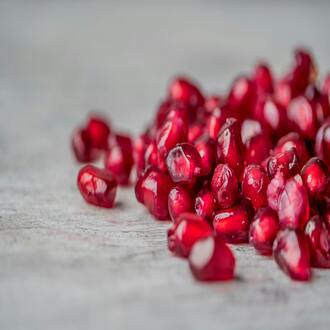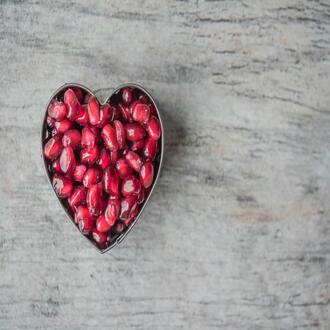Transcription Iron and other micronutrients
In this presentation we will explore the minerals that the body requires in doses of less than one hundred milligrams per day. This group includes iron, zinc, iodine, selenium, manganese and copper. These minerals are essential for the production of blood components, the healing of wounds, and the prevention of certain diseases, among many other functions.
Iron (Fe)
Most of the iron in the body is present in two proteins:
- Hemoglobin: Protein that transports oxygen from the lungs to the tissues.
- Myoglobin: Protein in muscle cells that stores oxygen in the muscles.
Iron-rich foods: Iron is found in two forms:
- Heme iron: Present in foods such as heart, liver, red meat, poultry, fish and eggs. It is better absorbed than vegetable iron and improves the absorption of vegetable iron.
- Non-heme iron: Found in foods of vegetable origin such as nuts and legumes. Its absorption can be improved by consuming it together with foods rich in vitamin C or heme iron.
Functions of Iron
- It transports oxygen through hemoglobin and myoglobin.
- It acts as a cofactor in several enzymes involved in oxidation-reduction reactions.
- It is crucial in the formation of collagen and many other chemical reactions.
Recommended intake of iron
- Women between 10 and 49 years old: 18 mg daily; from 50 years old onwards: 10 mg daily.
- Men between 10 and 12 years old: 12 mg daily; between 13 and 19 years old: 15 mg daily; from 20 years old: 10 mg daily.
Importance of iron for fitness: Intense workouts increase the need for iron, which can be satisfied with a diet rich in animal protein. In some cases, supplements may be recommended after medical evaluation.
Zinc (Zn).
Sixty percent of the zinc in the body is found in the muscles, with the remainder distributed in bones, skin, prostate and eyes. Foods rich in zinc include red meat, fish, seafood, whole grain cereals, nuts and pumpkin seeds.
Functions of zinc
- It is essential for the immune system and body development.
- Influences the senses of taste, smell and vision.
- Facilitates wound healing and acts as an antioxidant.
Recommended intake
- Adult women and men: 15 mg daily.
- Pregnant and lactating women: 20 mg and 25 mg daily, respectively.
Iodine (I)
Iodine is essential for the function of the thyroid gland. It is found mainly in fish, shellfish, seaweed and iodized salt.
Functions of iodine
It is essential in thyroid hormones, which regulate body temperature, metabolism, reproduction and growth.
Recommended intake of iodine
- Adult women: 110-115 µg daily; pregnant women: 135 µg daily; infants: 155 µg daily.
- Adult men: 125-145 µg daily, depending on age.
Selenium, Manganese and Copper
Selenium: It is an antioxidant together with vitamin E. It sti
iron micronutrients



![Is the online course compatible with different languages? [indicate the main language]](/images/postDuplicados/Is_the_online_course_compatible_with_different_languages_indicate_the_main_language.webp)
